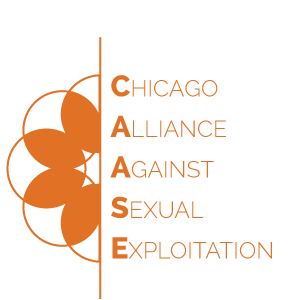When Victims’ Rights are Violated, They Need More Than an Admission of Wrongdoing
October 1, 2019
Every survivor of sexual harm defines justice differently. One may seek personal safety in criminal court, seeing their perpetrator prosecuted for the pain they caused. Another may need financial support, through court-ordered restitution, to pay for medical or therapy bills to heal from their sexual assault. Others may want to have their day in court to directly address their perpetrator in their own words, without interruption or traumatizing cross-examination, through a victim impact statement. Victims’ rights laws like Illinois’s Rights of Crime Victims and Witnesses Act and the federal Crime Victims Rights Act can and should account for these varying needs. These laws are supposed to ensure survivors’ voices are heard and their individual needs are respected throughout the criminal justice process.
However, recent civil and criminal cases against Jeffrey Epstein highlight the need to enforce and amend federal and state victims’ rights laws. Earlier this year, a federal judge ruled that the U.S. government violated the rights of Epstein’s victims by not including them during the creation of a federal non-prosecution agreement—which has been referred to as a ‘sweetheart deal’ for the predator—among other violations. Yet, a judge later ruled that the victims weren’t entitled to any remedies they sought under federal law for the violation of their rights. The judge acknowledged this discrepancy in his decision, writing:
“So, despite [Epstein’s victims and their attorneys] having demonstrated the Government violated their rights under [federal victims’ rights law], in the end they are not receiving much, if any, of the relief they sought. [Epstein’s victims] may take solace, however, in the fact that this litigation has brought national attention to the Crime Victims’ Rights Act and the importance of victims in the criminal justice system.”
Yesterday, the victims’ attorneys filed a petition to appeal that decision, stating “The district court’s ruling turns (the Crime Victims’ Relief Act) into a hollow promise for victims and should be overturned,”. We agree—it’s time to make sure the promise of these laws is fulfilled for ALL victims. For instance, survivors of sexual abuse should be provided the opportunity to voice their input and define what justice means for them after suffering horrific harm at the hands of their abuser. They deserve more than platitudes about the importance of crime victims in our legal system.
Epstein’s case amplifies failures of the federal crime victims’ rights law, even though it allows for some remedies when violations occur. But Illinois law is even weaker: it has no specified remedies should a victim’s rights be violated, and the law explicitly disallows others. Remedies are critical components of laws as they ensure institutions and their players actually follow it. And if they don’t, people have the ability to seek recourse. If remedies aren’t written into law and followed by our legal system, what’s to say that any person’s rights will be enforced?
As the only organization in Chicago that specifically offers legal services on victims’ rights enforcement for survivors of sexual harm, CAASE appreciates the conversation around better supporting victims’ rights. But conversation is not enough: now is the time to improve our laws and educate our community about victims’ rights and survivor-defined justice. Until we do so, we will continue to see victims’ rights ignored—with no ability for survivors to seek recourse when their rights are violated.
This piece was primarily authored by Madeline Behr. Learn more about our staff here.



